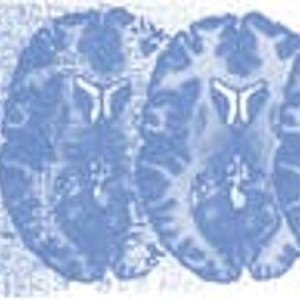This specialization by Johns Hopkins University combines the strength of 4 different neuroscience courses into a cohesive learning experience. It begins with fundamental neuroscience concepts for neuroimaging, introducing the basic principles of neuroimaging methods applied to human subjects research and necessary neuroscience concepts. The course then delves into Functional Magnetic Resonance Imaging (fMRI), covering design, acquisition, and analysis of fMRI data, including psychological inference, MR Physics, K Space, pre-processing of fMRI data, and Generalized Linear Models (GLM’s). The specialization also includes a course on neurohacking using the R programming language, focusing on manipulation, processing, and analysis of publicly available structural MRI. Participants will learn to read/write images of the brain in the NIfTI format, perform inhomogeneity correction, brain extraction, and image registration.
Throughout the specialization, participants will familiarize themselves with fMRI data design, structure, and acquisition, as well as artifacts and types of noise. The courses equip learners with the knowledge of neuroimaging principles and techniques, providing a deeper understanding of the living, functioning human brain and its investigation through multidisciplinary work.
Certificate Available ✔
Get Started / More Info
The Neuroscience and Neuroimaging specialization comprises modules covering fundamental neuroscience concepts for neuroimaging, principles and analysis of fMRI, and neurohacking using the R programming language for processing and analysis of neuroimaging data.
Neuroimaging methods are increasingly utilized in clinical practice and basic research. This course introduces the basic principles of neuroimaging methods applied to human subjects research and necessary neuroscience concepts, including neuroanatomy, cognitive domains, and experimental design. Participants will gain an understanding of different neuroimaging applications, such as functional MRI, diffusion tensor imaging, magnetic resonance spectroscopy, perfusion imaging, and positron emission tomography imaging, reviewing their specific methods, signal sources, goals, and limitations.
This course covers the design, acquisition, and analysis of Functional Magnetic Resonance Imaging (fMRI) data, including psychological inference, MR Physics, K Space, experimental design, and pre-processing of fMRI data. Participants will also learn about Generalized Linear Models (GLM’s) and the multidisciplinary nature of fMRI as a convergence point for various disciplines. The course provides a comprehensive understanding of fMRI data and its analysis for investigating the living, functioning human brain.
Continuing from the previous course, this module focuses on the analysis of Functional Magnetic Resonance Imaging (fMRI) data. Participants will delve into advanced techniques for analyzing fMRI data, further enhancing their understanding of the living, functioning human brain and its investigation through multidisciplinary work. The course builds upon the knowledge gained from Principles of fMRI 1, providing a comprehensive understanding of fMRI data analysis.
This course introduces participants to neurohacking using the R programming language and its associated packages for manipulation, processing, and analysis of neuroimaging data, focusing on publicly available structural MRI. Topics include inhomogeneity correction, image registration, and image visualization. By the end of the course, participants will be equipped to read/write images of the brain in the NIfTI format, visualize and explore these images, and perform inhomogeneity correction, brain extraction, and image registration.
Data Analysis in Python: Using Numpy for Analysis. Learn to transform data into Numpy arrays, calculate BMIs and player efficiency rates for NBA players.
Hone your skills in hypothesis testing using Python and Excel, and learn to apply these techniques to real-world business scenarios.
Relational Database Support for Data Warehouses is an in-depth course covering SQL analytics, data warehouse management, and storage architectures for business intelligence....
Gestiona un proyecto de datos en tu organización te proporciona las herramientas esenciales para desarrollar proyectos de datos en el sector público o privado,...